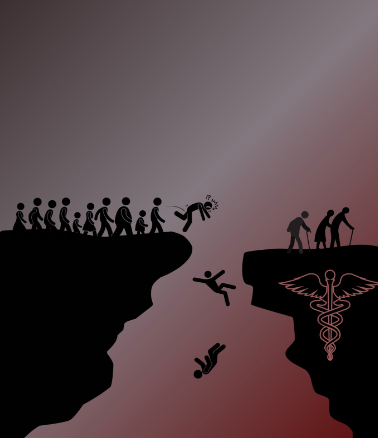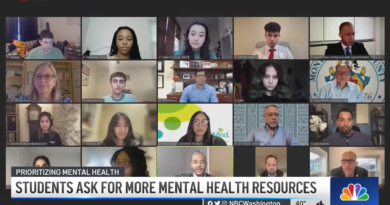Health and Wellness Declining in Adolescents
Good health is one of the most important things for adolescents as it affects both their brain development in the prefrontal cortex (the area in the brain that controls behavior, stress, and decisions) and their physical development. Over the years, there has been a rise in cancer and health-related issues developing in individuals younger than the age of 50. These issues include gastrointestinal cancer, obesity, type 2 diabetes, smoking hazards, and mental health problems, according to The Harvard Gazette and The Lancet. What’s causing the rise of health issues among young people and how are their lifestyles affecting their health in the long run?
Gastrointestinal Cancer
Gastrointestinal (GI) cancer is the abnormal growth of cells in the digestive and abdominal tracts. GI cancers can affect the stomach, esophagus, pancreas, colon, rectum, and other body parts. Over the years, there has been an increasing trend of younger individuals getting diagnosed with GI cancer, according to Healthline. Some of the main factors that are causing adolescents to get GI cancer are their choices of lifestyle and their diets. Individuals who are obese or overweight, people with high blood pressure, and people with diabetes are at a higher risk of developing GI cancer.
Healthy Habits
If there has been a decline in good health among young people, is it connected to how they eat and exercise? Senior Namara Mugamba said that her exercise routine consists of dance class once a week and tennis practice every day. In terms of her diet, she mostly consumes whole foods, while occasionally eating fast food and processed food. When asked if she thinks her lifestyle is healthy she replied, “Overall, I believe I’m healthy, although sometimes I may indulge in a cheat meal that may be unhealthy or sugary.”
According to a survey taken by many Blake students, around 66.7% of Blake Bengals exercise daily, while 6.6% say they never exercise. In addition, 30% of Blake students said they eat out more than three times a week, while 16.17% said they rarely eat out. When asked how often they consume processed foods, 50% said occasionally, 46.7% said pretty often, and 3.3% said rarely. This shows that Blake students are very conscious of how they approach diet and exercise.
Obesity: The Silent Killer
The most common health issue that adolescents are struggling with is obesity. The NIH estimated that around 20.6% of adolescents ages 12 to 19 are obese. Obesity is troubling as it can lead to health issues such as heart disease, diabetes, GI cancer, sleep apnea, fatty liver disease, severe COVID-19 symptoms, and osteoarthritis, according to the Mayo Clinic. Obesity can lead to depression and anxiety disorders, as noted by the NIH.
Sleep Deprivation
Sleep deprivation is a bigger deal than most young people want to admit, as studies have shown that people who often get little sleep are at a higher risk of weight gain and obesity. The same survey taken by Blake students asked Bengals the amount of sleep they got each night. 76.7% of students said they got below eight hours of sleep each night, 16.7% said they got exactly eight hours of sleep each night, and 6.7% said they got an estimated 9-10 hours of sleep each night. The importance of sleep for teenagers can’t be underestimated since they are in the prime time of physical and mental development.
Mental Health Problems
Depression and anxiety are common in adolescents as most teenagers are stressed about school, extracurriculars, college, and various other issues. A 2023 study showed that 16.39% of youth reported suffering from at least one MDE (major depressive episode) in the past year. In the aforementioned survey, at least 48.1% of Blake students said they were suffering from depression, while 50% stated they weren’t. Overall, nearly half of the students who had taken the survey are currently facing depression, which is a major health risk because mental health is as important as physical development. Good health is not an option – it’s a necessity that allows you to live a long and happy life.
Conclusion
The decline of health in younger people is beyond concerning as the youth are society’s future. More awareness about this potential health crisis is needed, especially in a world that promotes processed foods and unhealthy diets to almost everyone. The myth that health should be prioritized when you get older has been disproven in the face of this crisis, and if young people don’t get it together, the world will be a much unhealthier place than it already is.




